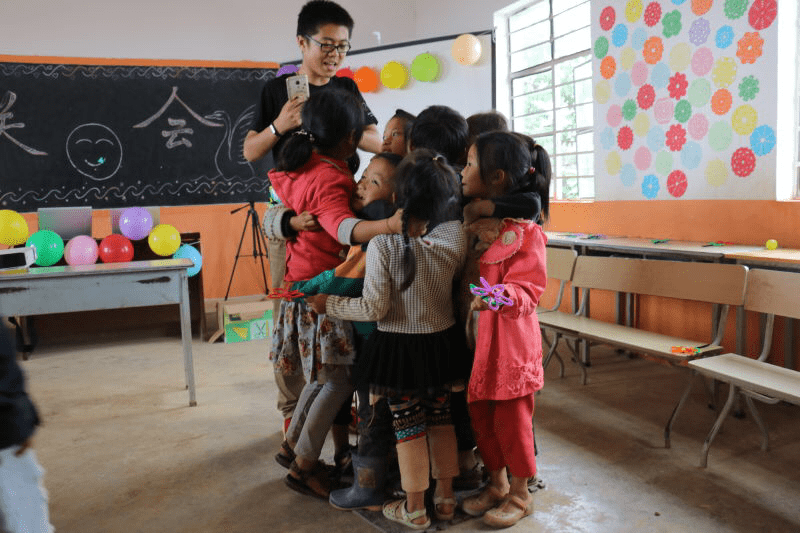A serious talk and comments on the "Teaching Support" activity
July 16th. to July 29th, my first participation in a "teaching support" activity ends like this. At the time of the class meeting we held the last day, I thought I wouldn't feel much sadness. After all, before coming I already prepared it as a short term teaching activity, so I wouldn't have too many concerns. But when I saw the children finally leaving through the narrow school gate, looking at the empty classroom and playground, you realize that something is missing.
I don't like taking photos. I feel that without the memories of photos, people forget pretty quickly. But this time, we took lots and lots of photos and I think I will not forget in my whole life.
I love the blue sky here, the green landscape, the earthly smell of the village and the children. What could I use to describe the children here? Innocent, lively, simple. I could still many more adjectives and still not be exhaustive. The children here do not know Kaiyuan, they do not know Yunnan, they do not know what is outside the mountains. But they do know how to live. That is why I want to say that if I could choose a word to describe the children here, that word would be "independent". Really independent.
I would like to talk a bit about the completely different worlds you can see here and outside, or, in other words, the traditional world and the modern world.
I cannot say starting from when, modern has become lagging behind. People has become strange, even indifferent. Life is filled with dangers from other people. People are no longer able to enjoy and needs desperately to maintain a living standard, just like the wild life needs to hunt desperately to maintain their living. People living in the steel forest ends becoming as cold as the steel.
Here, people live in the traditional way. When the sun rises, they work, and when the sun sets, they rest. They are able to manage and take care of their small world. Their biggest worry is their crop's income, rather than the joys and sorrows of others. They will give you a big smile, they will ask the children to bring to you a big bag of peaches that should have to be sold outside, or that have been given to them by some relatives, they will invite you to have dinner with them. This will not be what the outside people can consider etiquette, their bodies have the color of the mud, but we are all children of the earth.
What I miss the most probably the sense of "honest people" from here, like one day I went to buy something from an old lady but forgot to bring money and the old lady asked me to take it first before paying.
I remember my sister once asked me if Yunnan was especially chaotic, but I discovered that the so-called chaotic is only the occasional antisocial people, and it is not something that happens every day because of people's intrigues. I remember once in Kunming we were asking for a road, a guy not only very kindly pointed to the road, but being afraid we did not understand it properly, he even crossed the road to explain it to us. What I want to say is that the people here are not disorderly or chaotic, they are just victims.
Another point here is about the phenomenon of black households and government inaction.
I remember villagers here say they formed the village naturally, but the government has never admitted it, until only a few years ago the government gave them "household registration", but it still is registration for outside people, still turning a blind eye, just collecting money but doing nothing.
I remember a sentence - "Russia will not save the Russian people, because it is too big, because it is immense". Even so unpretentious life will be finally destroyed by external forces. This is the sorrow of this country.
I feel there are many more things to say, but it is difficult to express them, so be it. I am just thinking I will go back there by myself at some time in the future. At that moment, how will be life over there? how will be the children?
沈权 - Shen Quan




